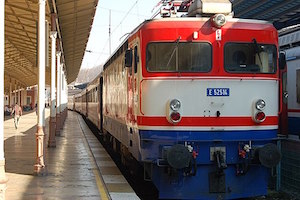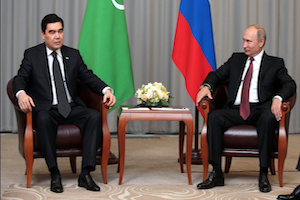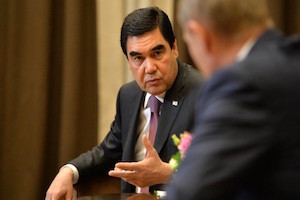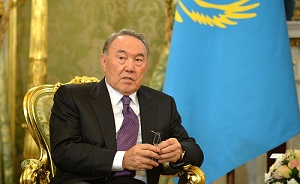Will the Lapis Lazuli Railway Corridor Finally End Afghanistan's Isolation?
By John C. K. Daly
December 1, 2017, the CACI Analyst
On November 15 during the 7th Regional Economic Cooperation Conference on Afghanistan (RECCA-VII) in Ashgabat Turkey, Afghanistan, Turkmenistan, Azerbaijan and Georgia signed an agreement providing for a major international trade and transport corridor stretching from Turkey to Afghanistan via the post-Soviet Central Asian republics, named the “Lapis Lazuli Corridor.” While many practical problems remain, the development and operation of such a railway corridor has enormous implications for the countries along its route, particularly Afghanistan.

Turkmenistan's Gas Export Dilemma
By Dmitry Shlapentokh
November 15, 2017, the CACI Analyst
At first glance, Turkmenistan’s decision in January 2017 to stop selling gas to Iran was a minor episode in the context of an otherwise friendly relationship between Tehran and Ashgabat, as indicated by several meetings of high Iranian and Turkmen officials following the clash over gas deliveries. However, the tension with Iran could imply serious problems for Turkmenistan and lead to increasing dependence on Beijing, regardless of all Ashgabat’s maneuvering. Turkmenistan’s fallout with Iran also limits the ability of both the West and the South to access Central Asian gas and facilitates an increasing Chinese influence in this part of Eurasia, providing additional opportunities for China’s resurrection of the Silk Road.

Presidential Visit Gives a New Boost to Azerbaijani-Turkmen Relations
By Fariz Ismailzade
September 6, 2017, the CACI Analyst
The recent visit of Turkmenistan’s President to Azerbaijan opens a new chapter in bilateral relations and creates a solid foundation for the expansive development of energy and transport projects in the Caspian region. The two countries play a key role in the East-West transport corridor in the greater Eurasia. Both countries hold significant carbohydrate resources. Political dialogue and strong partnership between these Turkic countries can transform the economic and geopolitical map of the region.

China – Pakistan Economic Corridor: An Opportunity for Central Asia?
By Fuad Shahbazov
June 19, 2017, the CACI Analyst
In May 2017, China hosted an international summit in Beijing gathering 28 heads of state from four continents and representatives of various international organizations. The summit was devoted to the Belt and Road Initiative, referring to overland and maritime routes across the Eurasian landmass. One of the most significant moments of the summit was the meeting between China’s and Pakistan’s leaders and the signing of a new agreement (MoU), adding to the US$ 46 billion already pledged for the China-Pakistan Economic Corridor (CPEC), a network of rail, road and energy infrastructure. During the event, Pakistan’s Prime Minister Nawaz Sharif met with the leaders of Kazakhstan, Uzbekistan, and Kyrgyzstan, requesting their investment in CPEC.
Revere or Reverse? Central Asia between Cyrillic and Latin Alphabets
By Farkhod Tolipov
June 6, 2017, the CACI Analyst
In April this year, Kazakhstan's President Nursultan Nazarbaev made it clear that Kazakhstan intends to change from the Cyrillic to the Latin alphabet. Thereby, this country took a new step in the overall course of its post-Soviet development as an independent state. Kazakhstan became the third state in Central Asia after Uzbekistan and Turkmenistan that decided to undergo such a change. Kyrgyzstan will supposedly be the next country to move in the same direction. The change of alphabets was met with geopolitically saturated aversion in Russian political circles and media, in contrast to the relatively peaceful manner with which it is being introduced in the countries themselves.





